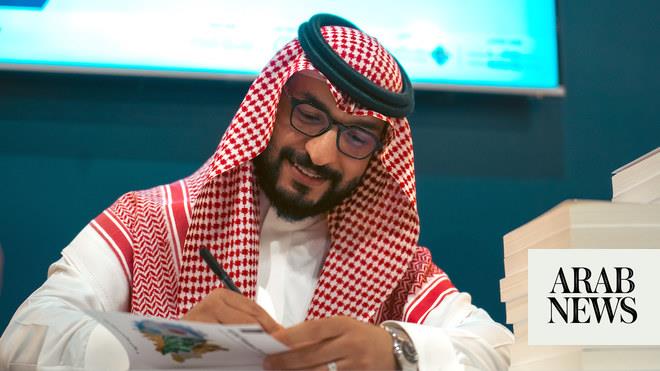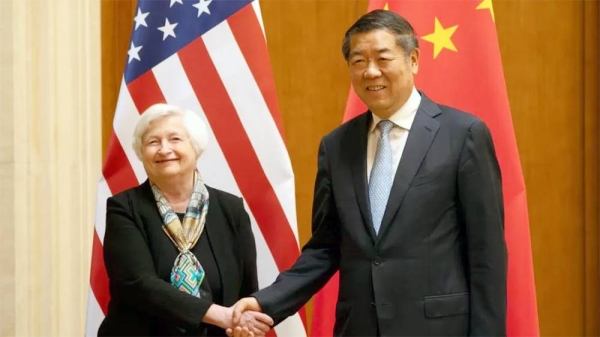
The UK announced this month that it would cede sovereignty over the remote Chagos Archipelago to Mauritius. You can be forgiven for having heard nothing of the Chagos Islands until the UK’s announcement, let alone not being aware that, all these decades after the sun was supposed to have set on the British Empire, they still remained a colonial possession many thousands of miles from home.
However, geostrategically, this is an important cluster of islands in the Indian Ocean, whose people were displaced in 1965 following the UK’s decision to separate the archipelago from Mauritius as part of a deal granting Mauritian independence. Now, the UK has tried to make amends by allowing Mauritius sovereignty over the Chagos Islands and the return of their displaced population.
Among the more than 60 islands is the tropical atoll of Diego Garcia, which is leased to the US. The military base built there in the 1960s is home to about 5,000 American and British personnel. After 9/11, US bombers launched attacks on Afghanistan from the island, while the base was also used during the 2003 invasion of Iraq. Amid growing tensions with China, the importance of this base has become increasingly clear.
Naively, we might have expected that, by now, the former British Empire had given up all its overseas possessions. Hence our surprise in learning that some examples of physical colonialism still exist, in addition to economic and political ones. Once it officially relinquishes control of the Chagos Islands, the UK will still hold 14 overseas territories.
Once it officially relinquishes control of the Chagos Islands, the UK will still hold 14 overseas territories
Yossi Mekelberg
Beyond the obvious symbolism of a former empire ceding its power over an overseas territory, there is now an opportunity to look at this move in the bigger picture of relations between the major powers of the Global North and those of the Global South and to think about transforming these relations into a more cooperative setup based on mutual interests and respect, rather than one that serves only the big powers.
The British Empire was already beginning to fade away before the Second World War and this process gradually accelerated in the war’s aftermath, more or less ending its colonial power in Africa, the Middle East and, most recently, Hong Kong in 1997. Astonishingly, there is still a minister within the Foreign, Commonwealth and Development Office who is in charge of overseas territories as part of their official role. And despite some criticism from right-wing politicians and media, this latest act of decolonization is long overdue. However, it is still not complete, as the agreement with the government of Mauritius stipulates that the Diego Garcia lease is for “an initial period” of 99 years.
In 2019, the International Court of Justice issued an advisory opinion that the separation of the Chagos Islands from the British colony of Mauritius was contrary to its people’s right of self-determination. And without a handover of the islands to Mauritius, its decolonization will not have been completed in accordance with international law. The very fact that it has taken a permanent member of the UN Security Council more than five years to reach an agreement that respects an advisory opinion, albeit not a binding one, of the principal judicial organ of the UN should be a cause for concern. It reflects both the status of international law and the dominance of power politics in international affairs at the expense of justice or fairness.
In the relations between the Global North, which comprises mainly high-income countries, and the Global South, which comprises mainly Latin American and African states, the physical presence of ex-colonial powers is on a very small scale, but the colonial mindset is far from being eradicated.
The term Global South was coined by American political activist Carl Oglesby in the late 1960s to denote a set of countries dominated by the Global North through political and economic exploitation. By then, much of the process of decolonization had been completed, but not all: in the Middle East, for example, the UK was slow to leave. The nature of the process saw physical separation but still left many examples of economic and security dependence, in addition to a psychological dependence that still lingers.
The physical presence of ex-colonial powers is on a very small scale, but the colonial mindset is far from being eradicated
Yossi Mekelberg
This unhealthy state of affairs has not just distorted the relationship between the powerful economic and military powers of the north, but badly affected state- and nation-building in the postcolonial countries. On too many occasions, a symbiotic relationship emerged between former colonizers and postcolonial states, which benefited the former rather than the latter in terms of exploiting natural and human resources and enhancing the economic prosperity of already wealthy countries, while perpetuating poverty and brain drain in the poorer ones. Moreover, in lesser developed countries, this distorted relationship also encouraged corrupt, authoritarian and nationalistic governments, creating even more poverty, inequality and conflict.
Handing back the Chagos Islands to Mauritius and allowing those who were forcibly exiled to return to their homes is a welcome development, but also regrettably a much-delayed act of justice. Yet, it could also be a small step toward looking at ending the UK’s control of other overseas territories that are relics of past eras, such as the case of Gibraltar, which unnecessarily strains relations with Spain, or of the Falkland Islands, over which the UK went to war with Argentina in 1982.
By now, the logic of holding onto such relics has more to do with the longing for an empire that has long gone than with any strategic or economic purpose. One also suspects that the fact that the world’s top three corporate tax havens — the British Virgin Islands, the Cayman Islands and Bermuda — are all British Overseas Territories makes them valuable to the economic elite in the UK. Hence, bidding farewell to them and risking this perk is less desirable for some.
Ending the physical control of territories far away from home is an important step forward. But it is the wider issue of liberating many of the former colonies from the stranglehold that former colonial powers and superpowers still have over them — and genuinely supporting them, or at least not hindering them in reaching the UN’s Sustainable Development Goals — that must be the ultimate goal.
Until now, we have witnessed only short-term approaches toward what the Global South could do for the wealthier and more powerful countries, which has had obvious disadvantages for low-income countries. But considering the increase in radicalization and illegal immigration, under-development also has a destabilizing impact on the more developed countries. So, decolonization in its new phase should include not only handing back the remaining UK overseas territories, but also supporting their people’s empowerment and human, political and social development.
Yossi Mekelberg is a professor of international relations and an associate fellow of the MENA Program at Chatham House. X: @YMekelberg











